A Brief Publishing History of Wee Creek Press LLC
In 2004 in Wyoming and elementary school teacher with a MA degree in childhood reading named Debra Womack, and her partner and husband, Steven Womack, Ph.D. who taught college classes in the discipline of history bought a tiny startup publishing company, Whiskey Creek Press LLC (WCP), which had less than ten total titles.
Over the course of the next decade Whiskey Creek Press LLC experienced considerable growth under the Womacks’ leadership, which included the creation of three imprints, Whiskey Creek Press, Whiskey Creek Torrid, and the children’s book imprint, Wee Creek Press LLC. Steven and Debra grew WCP into one of the nation’s largest independent publishers with more than 2,500 titles published from 2004 through 2014, representing 150 different authors from 25 countries around the globe, with three imprints publishing all genres of fiction.
In 2014, Whiskey Creek Press and Whiskey Creek Torrid were sold to Start Media Publishing, New York, a publisher, and feature film production company. Steven and Debra retained Wee Creek Press LLC as a Wyoming company and continue to publish fine children’s fiction more than six years later.
What is your background in the writing industry?
Womack: I wrote and co-wrote several screenplays in the 1980s and then switched to novels of fiction.
Can you share a day in the life of a publisher?
Womack: There are several parts to the publisher’s day, the editorial side, reviewing possible acquisitions, preparing works for publication, communicating with current authors and potential new authors, and replying to potential opportunities to promote possible opportunities. The demands to communicate with the appropriate people at the appropriate times can be overwhelming, and take up a vast portion of each day and more.
Are there any misconceptions people tend to have about publishers?
Womack: There is a lack of understanding about the costs involved for the publisher publishing a work. Better understanding would create more realistic expectations from the author.
What are the benefits of an author traditionally publishing their work?
Womack: The publisher is assuming some of the costs of publishing the book.
How can a new writer get in contact with a publisher?
Womack: Find publishers on the web who can meet your needs. The same suggestion works to find an agent, which often, but not always can help advance your career.
What is the process of traditionally publishing a book?
Womack: It has changed very much over the past twenty years. The industry is very financially challenged right now, as reading fiction and non-fiction books declines per capita in the United States.
What investment should a new writer be ready to make in efforts to have their work published? Womack: Lots of time.
Do you have any advice for new writers ready to start their path to publication?
Womack: Yes, of course. Start with the basics, such as finding publications that are similar to yours, and approach the publisher that published that title. Publishers often publish several books that are similar and/or alike because the first titles made them money. Don’t forget that publishing is a BUSINESS. When you submit your work, convince the publisher that your book will make them money too. Tell them/show them (pun intentional) that you believe in yourself and your work, have faith in your story (for what else do you know better, and dare I say, exude in confidence that when your book is published by the publisher (or accepted for representation by an agent) its only route is the one to success (and the profit the publisher would like from every book published). To believe, have faith, and be confident are very contagious forces, ones that you need to learn to control and use to your benefit, excellent tools for you to put in your marketing toolbox for your future marketing efforts. Make sure there is no doubt of your work’s potential, believe, have faith, and show confidence. Don’t let the publisher or agent smell any doubt or frustration on you.
Here Are a Couple of Additional Points, Obvious to The Point Of Pain But Still Good To Mention: (1) Publishing is a business, and the really fun one: (2) Submitting your submission to your selected publisher or agent. The publisher will most often tell you what they want in the documentation package of your submission, except those working for the CIA Publishing Firm, who will keep it a secret. Provide whatever is requested without missing anything. If you leave out of your submission requested documents by the publisher like the manuscript (what does that say about your confidence?) or your email address or something like that, the publisher will think you’re still in first grade and unable to follow directions. If that happens, you will need to raise the bar of your professionalism or spend several hours in a bar as “research” for your storyline. “Remember too what we discussed above: believe, have faith, and be confident are very contagious forces that can help you get a publishing offer. Submit everything requested, and also include plans you have made for self-promotions once your book is published, give yourself two gold stars that you knew the publishing business has gone through many challenges. Thanks to bankruptcies New York Press is HALF the number of companies (ie large corporations whose main business may not even be publishing books) it was fifteen years ago. Be prepared to be flexible when dealing with small publishers too, which will probably be the first to open a door for you.
Be prepared to get discouraged, because you will, but that only proves your humanity, a good thing. So plan a strategy that will get you out of your discouragement when it strikes. Remind yourself that writing is not easy, and it is a lonely venture. Believe in yourself and the story you have to tell, and have faith you will be successful in telling it. Write down a reminder of WHY you are writing the book you are writing, on an index card. Then add a fun goal you have for writing your book. Put the index card into a frame and hang it on the wall wherever you write and read it at least once a week. At one period in my life, I flew 3-4 times a week on an airplane for business. My writing goal was to see a stranger reading my book in his assigned seat while we were boarding. It took fifteen years, but it happened. Alas, just once. But that goal motivated my writing effort when I got discouraged. Think, right now, somewhere there is a stranger in the dark mysterious “out there” book world, who will be first to pay for the privilege to buy your book and read your story.
Chances are nearly zero that you will ever get rich writing, but that wasn’t the reason you wrote your book, was it? Be sure to know what your reason(s) are for writing your book, so you can remind yourself down the road. Be true to yourself as you write, for all writers should, as the saying goes, “write what you know,” and of course, what do you know more of than yourself? So when you get discouraged with efforts to get it published or find an agent, and its taking more time than y, go back and read the reasons why you are writing your book. Writing can be a struggle, getting your book published an even greater struggle, but when someone buys your books, and presumably reads it too, it makes it all worth the effort (in this case a moral victory, not a financial one). Have your editing and artwork ideas ready, and self-marketing strategies. Most publishers will expect you, the author, to participate in promotions for your work; in other words, spend your OWN money. This is especially the case for smaller publishers, with small budgets for advertising. No promotion by you often means no sales either. Always ask the potential publisher what and how they support the promotion of your book before you sign any agreement. Prepare a promotion strategy for your book before you submit your submissions package. Ask the publisher to inform you what they do to promote your book (and remember, this is a business).
Edit, edit, edit: Remember you are a new author seeking your first publication offer, this first submission of yours to a publisher and agent should have a word length in the range of 55,000 total words to 65,000 words.
FINALLY, NEVER stop believing in yourself and the words you’ve put on the page. You can do this! Read your reminder of WHY you wrote the book when you get discouraged, and it will all be worth it, which is why you will find yourself thinking of a new book again. Good luck, and keep writing!
What are you currently reading?
Womack: Casey Stengel Baseball’s Greatest Character by Marty Appel




